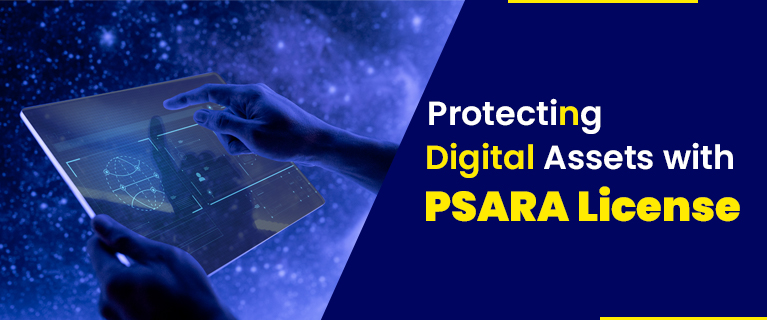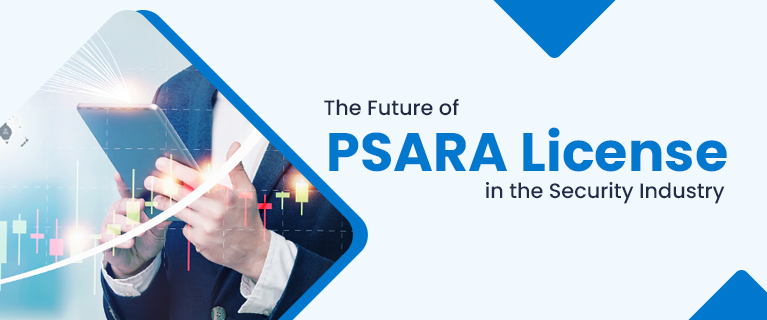Protecting Digital Assets with PSARA License
In today's digital landscape, businesses and individuals heavily rely on digital assets for their operations and daily activities. These digital assets, including sensitive data, intellectual property, financial information, and customer records, are invaluable and require robust protection against cyber threats. While the Private Security Agencies Regulation Act (PSARA) primarily focuses on physical security, the evolving nature of security risks has necessitated the inclusion of digital asset protection within the purview of the PSARA License. In this blog, we will explore the importance of protecting digital assets, the role of the PSARA License in safeguarding against cyber threats, and the measures security agencies can take to ensure the security of digital assets.
Read also this -: How PSARA Licence Empowers Private Security AgenciesThe Significance of Protecting Digital Assets:
Digital assets are essential components of modern businesses and individuals' lives. They encompass a wide range of information, such as customer databases, trade secrets, financial records, and proprietary software. Protecting these assets is critical for several reasons:
1. Confidentiality: Digital assets often contain sensitive information that must be kept confidential. Unauthorised access to this information can lead to financial losses, reputational damage, and legal consequences. Protecting digital assets ensures that confidential information remains secure.
2. Integrity: Maintaining the integrity of digital assets is essential to ensure their accuracy and reliability. Any unauthorised modification or tampering can compromise the trustworthiness of the data, leading to operational disruptions, financial losses, or compromised decision-making processes.
3. Availability: Digital assets need to be readily available to authorised individuals or systems when required. Downtime, data breaches, or cyberattacks can disrupt business operations, hamper productivity, and result in financial losses. Ensuring the availability of digital assets is crucial for uninterrupted business continuity.
The Role of the PSARA License in Safeguarding Digital Assets:
While the PSARA License primarily focuses on physical security, it can play a significant role in protecting digital assets as well. Security agencies with a PSARA License can expand their services to include cybersecurity measures and digital asset protection. Here's how the PSARA License can contribute to safeguarding digital assets:
1. Holistic Security Approach: Security agencies with a PSARA License can adopt a holistic security approach that encompasses both physical and digital security measures. This comprehensive approach ensures that businesses have robust protection for their digital assets along with their physical premises.
2. Risk Assessment: PSARA-licensed security agencies can conduct thorough risk assessments that include digital security risks. By identifying potential vulnerabilities and threats, these agencies can develop tailored security strategies to protect digital assets effectively.
3. Cybersecurity Solutions: Security agencies can provide cybersecurity solutions to mitigate cyber threats and protect digital assets. This can include implementing firewalls, intrusion detection systems, encryption protocols, and security awareness training for employees.
4. Incident Response and Recovery: In the event of a cybersecurity incident, PSARA-licensed security agencies can play a vital role in incident response and recovery. They can assist in investigating security breaches, identifying the extent of the damage, and implementing measures to mitigate further risks. This proactive response helps minimise the impact on digital assets and facilitates a faster recovery.
5. Security Audits and Compliance: PSARA-licensed security agencies can conduct regular security audits to assess the effectiveness of existing security measures. These audits help identify any gaps or weaknesses in the protection of digital assets, enabling timely remediation. Additionally, security agencies can assist businesses in ensuring compliance with relevant cybersecurity regulations and industry standards.
Measures to Protect Digital Assets:
To effectively protect digital assets, security agencies with a PSARA License can adopt several measures:
1. Employee Training: Security agencies can provide comprehensive training programs to educate employees about cybersecurity best practices. This includes raising awareness about phishing attacks, password hygiene, data handling procedures, and social engineering threats.
2. Incident Response Planning: Security agencies can assist businesses in developing incident response plans to mitigate the impact of cybersecurity incidents. These plans outline the steps to be taken during a breach, including communication protocols, containment measures, and recovery strategies.
3. Security Monitoring: PSARA-licensed security agencies can implement robust security monitoring systems to detect and respond to cyber threats in real-time. This includes intrusion detection systems, log analysis, and security information and event management (SIEM) solutions.
4. Regular Updates and Patch Management: Security agencies can help businesses stay up-to-date with the latest security patches and software updates. Regular patch management ensures that vulnerabilities are addressed promptly, minimising the risk of exploitation.
5. Encryption and Data Protection: Security agencies can assist in implementing encryption protocols to protect sensitive data both at rest and in transit. This helps safeguard digital assets from unauthorised access or interception.
6. Ongoing Risk Assessments: PSARA-licensed security agencies can conduct regular risk assessments to identify emerging threats and vulnerabilities. By staying proactive and vigilant, businesses can continually enhance the security of their digital assets.
Read also this -: How to Apply Online for a PSARA LicenseConclusion
protecting digital assets is paramount in today's digital age. While the PSARA License primarily focuses on physical security, security agencies with a PSARA License can expand their services to include comprehensive digital asset protection. By adopting a holistic security approach, conducting risk assessments, providing cybersecurity solutions, and assisting in incident response and recovery, PSARA-licensed security agencies can play a pivotal role in safeguarding digital assets. Collaborating with such agencies empowers businesses to navigate the complex landscape of cybersecurity threats, ensuring the confidentiality, integrity, and availability of their valuable digital assets.




Comments
Post a Comment